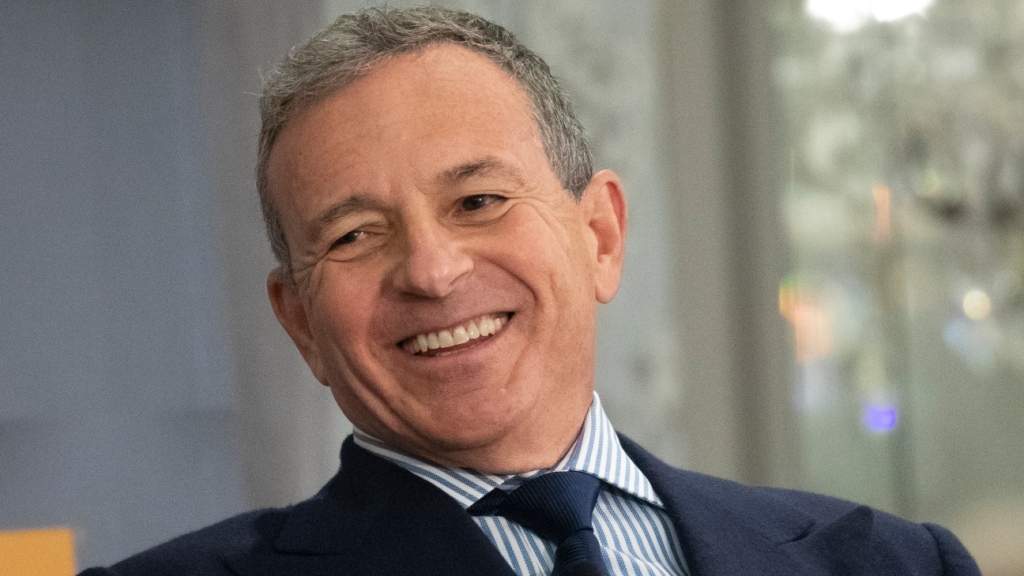
While top executives Dana Walden and Craig Erwich were expecting to spend their Sunday evening enjoying the AMAs followed by the Elton John farewell concert at Dodger Stadium, the stunning news that Bob Iger was returning as CEO of Disney while Bob Chapek was out shot through Hollywood like a thunderbolt (both Walden and Erwich tellingly disappeared from the AMAs just before a company-wide email went out to Disney employees). Insiders say few even at the highest levels knew the announcement was coming.
It was an ultimate triumph for Iger, though of course he inherits the same vexing problems plaguing all legacy media companies as their longtime revenue sources dwindle and the shift to streaming continues to be a money-loser while doing increasingly little to charm Wall Street.
One industry source says the Disney board had been divided over keeping Chapek in place for the past several months. His performance on the most recent earnings call earlier this month, according to this account, was the deciding factor. While Chapek alluded to the need for cost-savings during the call, it wasn’t until later that week that he outlined dramatic plans to cut costs, including a hiring freeze and likely layoffs.
Sources believe the deal to bring Iger back came together quickly — in the past week. While many questions remain, it seems certain that Iger will unwind the reorganization that Chapek put in place, which effectively moved the power of the purse from Iger’s creative executive team to Chapek’s trusted lieutenant, Kareem Daniel. Board Chairman Susan Arnold noted in a statement that Iger “is greatly admired by Disney employees worldwide… which will allow for a seamless transition of leadership.”
The Hollywood Reporter has reached out to both Iger and Chapek for comment.
It is fair to say that Chapek never won that broad admiration. Though a longtime Disney exec, he was not known to the broader entertainment community. Early missteps – including a messy public conflict with Scarlett Johansson over compensation and a public refusal to denounce Florida’s “don’t say gay” law that was quickly reversed after a staff outcry – did not inspire trust. While Iger didn’t comment publicly on Chapek, he made some of his views known – such as when he tweeted his own opposition to the Florida law while Chapek was still trying to avoid taking a position.
In the past quarter, Disney missed analyst expectations for revenue by more than $1 billion, and also missed on earnings per share (EPS). The company also disclosed significantly larger than expected losses of $1.5 billion in its direct-to-consumer business, more than double the losses from the year prior. Chapek and CFO Christine McCarthy (an Iger holdover) told analysts that they expected the segment to swing to profitability beginning in fiscal 2024.
While Disney+ continued to add subscribers at a staggering rate, topping Wall Street predictions, average revenue per user (ARPU) continued to shrink, as consumers bought into the less lucrative bundled options.
And while Disney’s parks and consumer products businesses remain strong — Chapek said the parks business had its best year ever — the extent to which those profits were driven by price increases and upsells like Genie+ have alienated some fans and alarmed some analysts who fear that the company could be making its parks less accessible to middle-class families, which could hurt the company down the line.
It was clear even before Iger departed the premises at the end of December 2021 that he was disenchanted with the choice of Chapek to take the reins as CEO. But in June, the board renewed Chapek’s deal. It was a qualified endorsement, however, as he was extended for two years but was not given a new three-year contract.
In his last formal appearance before the Disney board and top executives, Iger had given a rousing speech about the importance of creativity that many within the company interpreted as a slam at Chapek. “In a world and business that is awash with data, it is tempting to use data to answer all of our questions, including creative questions,” he said. “I urge all of you not to do that.” If Disney had relied too heavily on data, he noted, the company might never have made big, breakthrough movies like Black Panther, Coco and Shang-Chi and the Legend of the Ten Rings.
Chapek’s last email to all employees on Nov. 11 was about the creation of a “cost structure task force” comprised of himself, McCarthy and general counsel Horacio Gutierrez who would “make the critical big picture decisions necessary to achieve our objectives,” including potential layoffs and a “rigorous review” of the company’s content spending. It is not yet clear what will happen to those plans.
In an interview on stage at the Paley Center for Media in New York Nov. 9, in what would be his last public appearance as CEO, Chapek went off about balancing respect for the past with a desire to find the future. “If we only rigidly adhere to that old model, we know what’s going to happen, right? You become extinct,” Chapek said. “And so our challenge inside Disney is always trying to respect the past, keep as much of the past as you can. But when the consumer is telling you, it’s time to move on to something new and fresh, you have to take that cue.” —additional reporting by Lacey Rose

